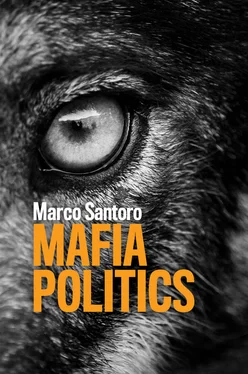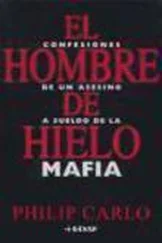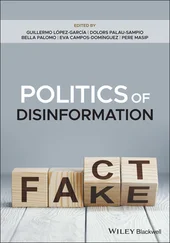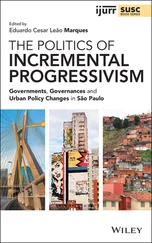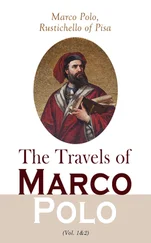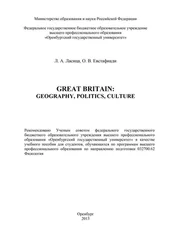5 5 As Sinisa Malešević has recently observed: ‘Although most sociologists recognize that without group solidarity it would be difficult if not impossible to envisage the existence of social order, this topic still remains under-theorized and under-analysed’ (2015, 86). Considering this lack of studies, it is not surprising mafia scholars usually miss the opportunity to address mafia(s) in what is the main point for their members, according to almost all the available witnesses and the charters of mafia and mafia-like groupings – i.e. ‘group solidarity.’
6 6 As a counterpart to, and condition for, secrecy, communication is clearly a central ingredient of mafia life, where everything has meaning and exists through meanings and symbolic forms (Gambetta 2009). It is because of the centrality of communication that deception plays such a role in the mafia and in mafiosi’s social life. Curiously, this focus on communication has been pursued not through an emphasis on the category of culture, but against it – possibly because of a narrow and outdated understanding of what culture and cultural analysis are in the social sciences.
7 7In this book I reduce to a minimum the use of visual sources. They will figure more prominently in a book in progress on mafia aesthetics.
2 The ‘Mafia’ in ‘Mafia Studies’: (Re)constructing a Sociological Object 
The Mafia is an organized crime formation with Sicilian roots; branches in France, Tunisia, and the Americas; and a recent presence in Russia and Eastern Europe. Its historical successes vis-à-vis other criminal groups, particularly in the United States, have made the word mafia (whose origin has never been convincingly traced) a brand name for organized crime. Recently repressed on both sides of the Atlantic, the Mafia, as such, may be on the wane, although reduced vigilance could allow a resurgence.
Schneider 2008, 550
What is ‘mafia’? Encyclopaedic entries nowadays repeat something like a mantra, well represented by the epigraph of this chapter: the mafia is a form of organized crime, possibly the most successful organized crime formation to have ever existed, so much so as to give its name to the whole genre. Cinema and novels have greatly contributed to this characterization of mafia in recent decades (e.g., Renga 2019 [2011]). But this general definition is far from exhaustive. Indeed, there is no shortage of alternative conceptions in the academic literature: it is a primitive, popular, ‘prepolitical’ movement, according to the influential Marxist historian Eric Hobsbawm (1959); a way of acting according to a shared set of sub cultural norms and values for the German sociologist/criminologist Henner Hess (1970); a ‘power syndicate’ for the American crime historian Alan Block (1983) – who worked not on the Sicilian mafia but on its branch in the US; a structure of mediation historically developed to fill the gaps between local society and a loose and weak national state, according to the Dutch anthropologist Anton Blok (1974); an aspect of the development of a ‘capitalism of mediation’ in the global economy for the American anthropologists Jane and Peter Schneider (1976). We could continue for some time with definitions like these, apparently lacking in consistency and disorienting to even the most patient student.
In order to move beyond such a simple list of definitions and to look for some conceptual patterns, in this chapter I provide an overview of the social research that has been done on the mafia, mapping the main currents and approaches that have developed since the early studies on the Sicilian mafia (and still earlier on the camorra) published in the 1860s up to recent works, authored by sociologists, anthropologists, economists, criminologists and political scientists. Since Hobsbawm’s pioneering contribution, historians too have devoted growing attention to mafia(s) – especially since the 1990s – and I will consider their works as well insofar as they have seriously built upon the social sciences or have improved on the contribution of the social sciences in some way. A distinction between theoretical approaches and theorized identities is then proposed, which permits us to distinguish, inter alia, between economic theories of the mafia as a political institution and economic theories of the mafia as an economic institution. After this narrative, I will try to reorganize the historical materials – at least the most recent ones, published since the 1970s, which comprise what we may call the modern scholarship on mafia – locating authors and works in a socio-intellectual space, or ‘field’ (Bourdieu), illuminating the main dimensions according to which mafia research (especially sociological mafia research, which is probably the leading discipline in the field) is currently produced, evaluated and reused.
In a sense, this chapter is a contribution to the sociology of mafia studies , or what we could call mafiology . A caveat is necessary at this point: I am not interested here in providing a history of ideas about mafias so as to reconstruct how something labelled as mafia or ‘the mafia’ has been constructed as an object of (social) research, in particular, as a sociological object. One of the main troubles of social research on the mafia is a sort of epistemological naïveté – not so different from what may happen in other research areas, to be sure, though with potentially more pernicious consequences. We can extend to mafia studies what Bourdieu noticed about social research in general:
[M]ost of the time, researchers take as objects of research the problems of social order and domestication posed by more or less arbitrarily defined populations, produced through the successive partitioning of an initial category that is itself pre-constructed: the ‘elderly’, the ‘young’, ‘immigrants’ … The first and most pressing scientific priority, in all such cases, would be to take as one’s object the social work of construction of the pre-constructed object. (Bourdieu and Wacquant 1992, 229)
In the case of the ‘mafia’, moving from ‘the problems of social order and domestication’ could be reasonable if the objective were to provide instructions useful for agents of social order (police forces and policymakers) in their law enforcement activities against supposed criminals. But it is much less so when the objective is knowledge and understanding, first and foremost – including knowledge of the social conditions that make it possible to identify something like the ‘mafia’.
‘Mafia’ is clearly a pre-constructed notion, a vernacular label, a folk-concept variously employed and manipulated by social agents that has not always been transferred into scholarly discourse with the necessary epistemological vigilance. The ‘construction of the object’ is ‘no doubt the most crucial research operation and yet the most completely ignored’ (Bourdieu and Wacquant 1992, 225). There is no such ready thing as ‘the mafia’ in the world. Mafia exists if, when and where we are able to see it because of our mental maps. The problem is twofold: first, there are many ideas of mafia – and people debate about which is the sounder or more plausible, or at least the less fantastic, concept. Indeed, what mafia really is, is part and parcel of the now century-and-a-half-long debate on the mafia, in academia as well as the public sphere. Second, what the ‘other’ of mafia might be is far from clear. Is it ‘the state’ as such? Or is it a certain historical form of the state? Or is it an ideal state – a representation of what we would like the state to be but which we can never really see? ‘Seeing like a state’ is far from an easy accomplishment, and failure is a common outcome of grand utopian schemes, as James C. Scott (2010) has persuasively shown. So, what about ‘the mafia’? What does it mean to be ‘mafia-like’? What does ‘seeing something like a mafia’ – paraphrasing but also reversing Scott’s influential formula – mean, if indeed it has any meaning at all? This is what I will try to assess in this chapter.
Читать дальше
